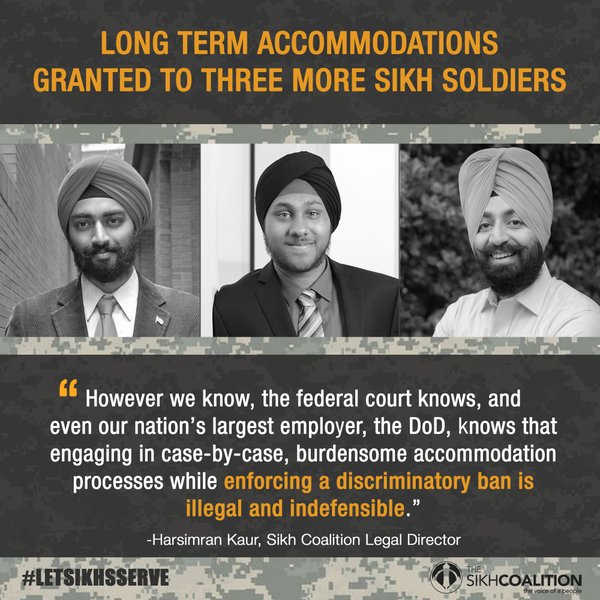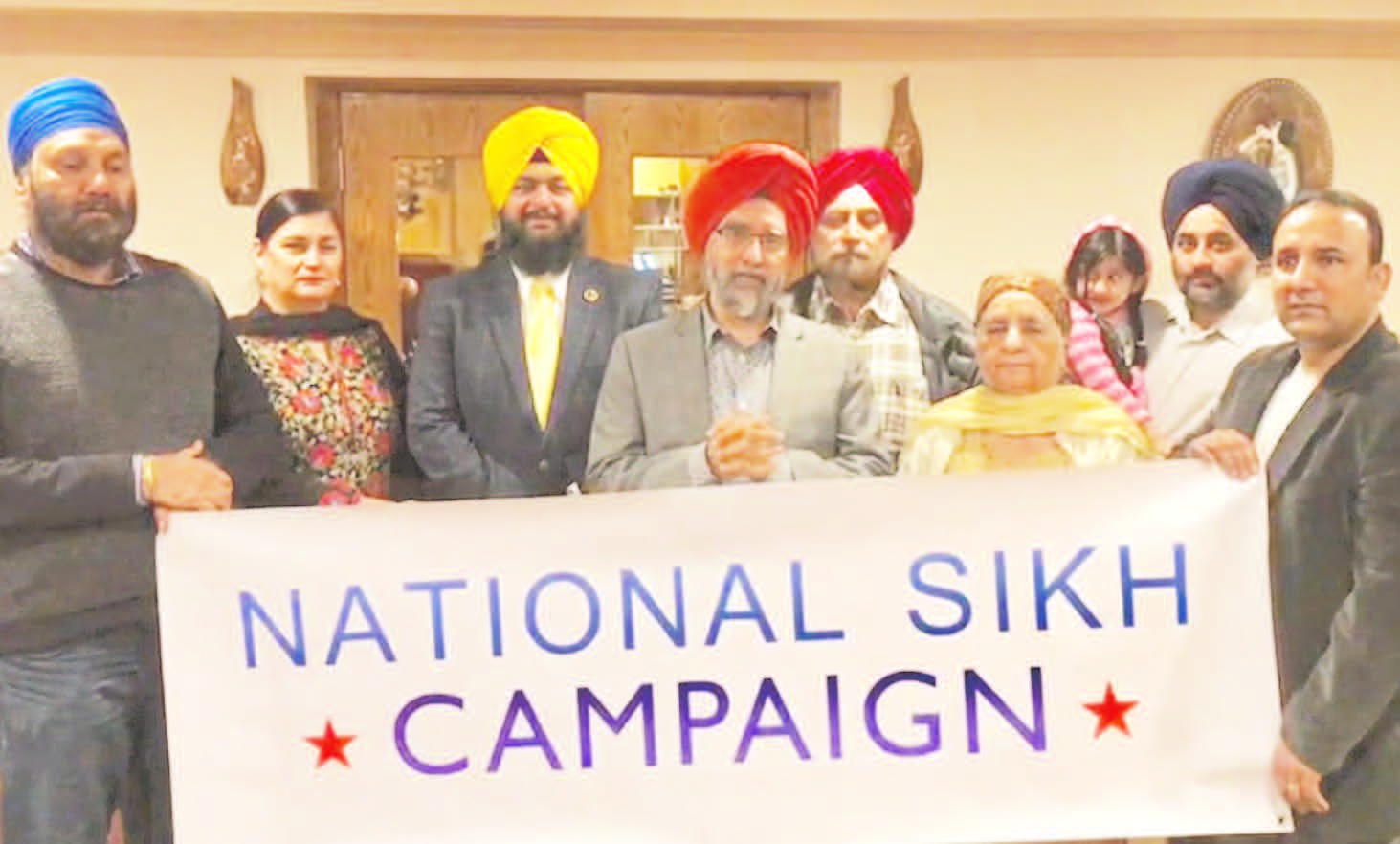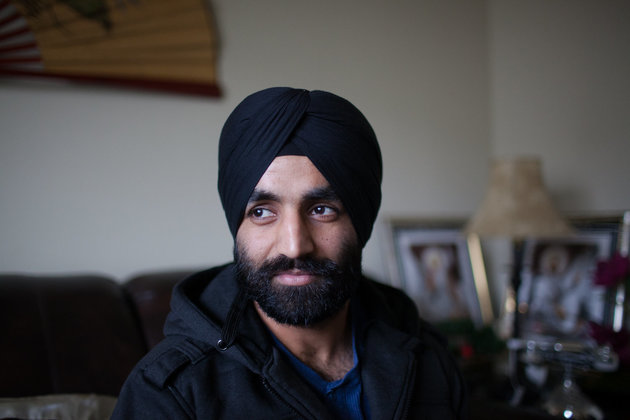
The U.S. Army granted three observant Sikh American soldiers religious accommodation April 8, permitting them to serve with their articles of faith intact.
The recent enlistees had sued the Army and the Pentagon to get an answer on their religious accommodation requests prior to starting basic combat training in May.
Two have been accommodated in the Army National Guard, and one in the U.S. Army Reserve. With the Army’s recent approval of a decorated Sikh-American Army captain, in just over a week, four Sikh soldiers have received landmark religious accommodations to serve their country without being forced to compromise their faith.
“We commend the U.S. Department of Defense for its decision to allow these soldiers to serve with their religious turbans and beards,” said Sikh Coalition Legal Director Harsimran Kaur. “However we know, the federal court knows, and even our nation’s largest employer, the DoD, knows that engaging in case-by-case, burdensome accommodation processes while enforcing a discriminatory ban is illegal and indefensible.”
“After months of waiting, I’m ecstatic that I can finally serve both God and country,” Private Arjan Singh Ghotra, one of the plaintiffs, said in a written statement. “I will be forever grateful to the Army for at least letting me go to boot camp. I look forward to proving that I can serve as well as anyone and am hopeful the Army will extend my accommodation afterward.”
Ghotra is a 17-year-old high school senior who enlisted with the Virginia Army National Guard.
Religious accommodations were also granted to Specialist Kanwar Singh, who joined the Massachusetts Army National Guard after seeing its response to the Boston Marathon bombing, and Specialist Harpal Singh, who joined the U.S. Army Reserve through the Military Accessions Vital to the National Interest program, which allows legal noncitizens who have in-demand skills to join the Army in exchange for expedited citizenship.
Devout followers of Sikhism, a South Asian religion, wear turbans and have unshorn hair.
Under a 2014 rule change, the armed services will accommodate religious requests for individual service members unless the request would interfere with military readiness, a mission or unit cohesion.
The religious accommodations for Ghotra, Kanwar Singh and Harpal Singh will be reevaluated after their training, according to Army memos released by their lawyers.
“I may withdraw or limit the scope of your accommodation for reasons of military necessity, including if I cannot confirm that Army protective equipment (to include [Army combat helmet] and protective mask) will provide you the intended degree of protection against the hazards presented by the duties or areas to which you will be assigned,” Assistant Secretary of the Army Debra Wada wrote in the memos.
Their turbans will have to be black or camouflage, depending on the situation, according to the memo. Also, their beards must be rolled or tied to no longer than two inches while in garrison or one inch when in the field or during physical training. And their hair cannot cover their ears or eyebrows or touch their uniforms’ collars.
Lawyers for the three men applauded the Army’s decision but said the case-by-case accommodations are still discriminatory.
“We commend the U.S. Department of Defense for its decision to allow these soldiers to serve with their religious turbans and beards,” Sikh Coalition Legal Director Harsimran Kaur said in a written statement. “However, we know, the federal court knows, and even our nation’s largest employer, the DoD, knows that engaging in case-by-case, burdensome accommodation processes while enforcing a discriminatory ban is illegal and indefensible.”
The soldiers are represented by the Sikh Coalition, the Becket Fund for Religious Liberty and the law firm of McDermott Will & Emery.





Be the first to comment